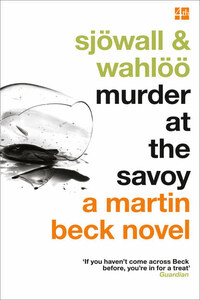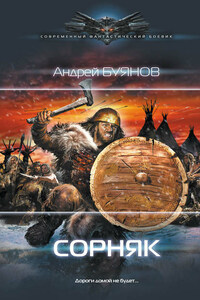MAJ SJÖWALL AND
PER WAHLÖÖ
The Abominable Man
Translated from the Swedish by Joan Tate
4th Estate
An imprint of HarperCollinsPublishers 1 London Bridge Street London SE1 9GF
www.4thEstate.co.uk
This ebook first published by Harper Perennial in 2009
This 4th Estate edition published in 2016
This translation first published by Random House Inc,
New York, in 1972
Originally published in Sweden by P. A. Norstedt & Söners Forlag
Copyright text © Maj Sjöwall and Per Wahlöö 1971
Copyright introduction © Arne Dahl 2009
Cover photograph © Shutterstock
PS Section © Richard Shephard 2007
PS™ is a trademark of HarperCollinsPublishers Ltd
Maj Sjöwall and Per Wahlöö assert the moral right to be identified as the authors of this work
A catalogue record for this book is available from the British Library
This novel is entirely a work of fiction. The names, characters and incidents portrayed in it are the work of the authors' imagination. Any resemblance to actual persons living or dead, events or localities is entirely coincidental.
All rights reserved under International and Pan-American Copyright Conventions. By payment of the required fees, you have been granted the nonexclusive, nontransferable right to access and read the text of this e-book on-screen. No part of this text may be reproduced, transmitted, downloaded, decompiled, reverse-engineered, or stored in or introduced into any information storage and retrieval system, in any form or by any means, whether electronic or mechanical, now known or hereinafter invented, without the express written permission of HarperCollins e-books.
Source ISBN: 9780007439171
Ebook Edition © DECEMBER 2013 ISBN: 9780007323449
Version: 2016-03-30
From the reviews of the Martin Beck series:
‘First class’
Daily Telegraph
‘One of the most authentic, gripping and profound collections of police procedural ever accomplished’
MICHAEL CONNELLY
‘Hauntingly effective storytelling’
New York Times
‘There's just no question about it: the reigning King and Queen of mystery fiction are Maj Sjöwall and her husband Per Wahlöö’
The National Observer
‘Sjöwall/Wahlöö are the best writers of police procedural in the world’
Birmingham Post
Nations are stereotyped as easily as anything else, and in the 1960s and 70s most of us thought of Sweden as a paradise, where social democracy worked, where the welfare state was successful, where the girls were blonde and beautiful, where the scenery was lovely and the buildings half-timbered, and where sexuality was frank and innocent. Even its legendary suicide rate could be seen in a positive light, as being the result of the admirable willingness of Sweden’s coroners to be open and honest instead of hushing things up because of outdated taboos.
Maj Sjowall and Per Wahloo lived there, and knew different.
They’re usually described as a wife-and-husband team, but they weren’t married. They’re usually described as Marxists,but they were, more accurately, modern European socialists, intensely sceptical of capitalist excess. What is agreed upon – and what we readers should be grateful for – is that instead of writing agitprop in obscure journals, they aired their views in a series of ten crime novels, of which this title was the seventh. Originally the series had a single subtitle – what we might now call a strapline – which was ‘The Story of a Crime’, and which, it became clear, had a dual meaning. The books were crime stories, obviously, but the series as a whole was the authors’ indictment of the way power treats the powerless.
All very worthy, all very noble and interesting, and like most things worthy and noble and interesting probably destined for the footnotes of history – except that along the way Sjowall and Wahloo also invented a brand-new type of police procedural that changed the genre for ever and still resonates to this day.
Their criticism of government was unrestrained: ‘The centre of Stockholm had been subjected to sweeping and violent changes in the course of the last ten years. Entire districts had been levelled and new ones constructed … What was behind all this activity was hardly an ambition to create a humane social environment but rather a desire to achieve the fullest possible exploitation of valuable land.’ With predictable results: ‘This is an insane city in a country that’s mentally deranged.’
The police force was both their narrative vehicle and their political focus. Again stereotypically, because Sweden had been neutral during World War Two, and because the girls were blonde and beautiful, we thought of Sweden as an essentially pacifist country, but Sjowall and Wahloo were at pains to point out its central militaristic culture, and the way in which the police recruited from the military ranks. They saw the nationalisation of Sweden’s regional police forces in the mid-1960s as a final nail in the coffin, as a transition to a paramilitary force answerable to, and interested in, no one but itself: ‘If you really want to be sure of getting caught, the thing to do is kill a policeman … There are plenty of unsolved murders in Swedish criminal history, but not one of them involves the murder of a policeman.’ And: ‘… everyone knows it’s pointless to report a policeman. The general public has no legal rights vis-à-vis the police.’














